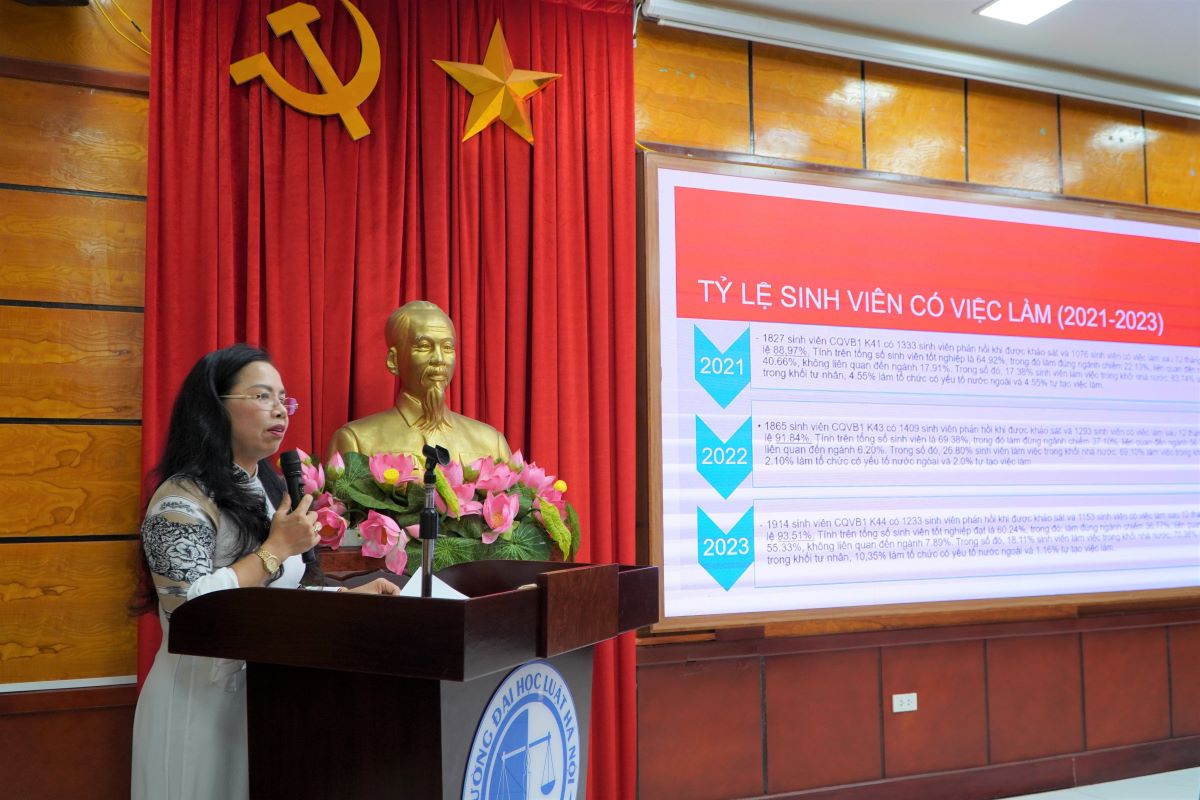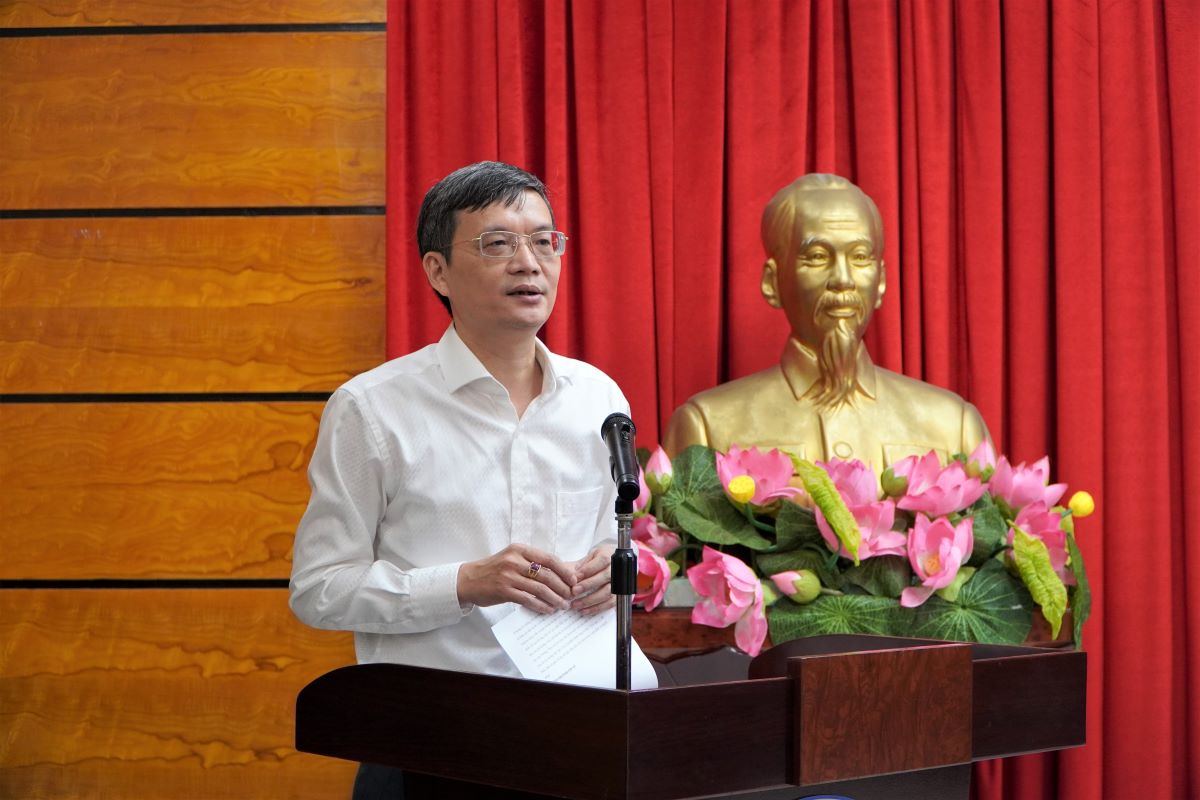On the morning of June 19, Hanoi Law University held a seminar on "Developing students' legal practice skills to meet the requirements of the job market". The seminar revolves around the current situation of training Law students and discussing solutions to ensure output for students, helping them meet the requirements of the labor market in the new context.
According to the report, the rate of students at Hanoi Law University having jobs after graduation after 12 months (over the total number of students surveyed) is very high, always over 90%. This figure was compiled by the school in the last 3 years.
However, the rate of students who are in the right profession is low, below 50%. Working in related fields is about 50% on average, working in the state sector is only about 20%.

In addition, Dr. Tran Kim Lieu - Director of the Center for Legal Practice, Hanoi Law University - said that the professional skills of Vietnamese students are still behind many countries. For the Law major alone, according to a survey in some schools, 90% of students after graduation have not yet achieved the skills that employers expect.
For Hanoi Law University, there is currently no survey on students' ability to adapt to the working environment and their ability to maintain their careers after participating in the job market.
"I have received feedback that law students, although the quality is very good, when working in the legal department, agencies and units still have to spend 6 months on retraining" - Ms. Lieu said and worried, how should schools do so that students can immediately start working when graduating.
According to Dr. Tran Kim Lieu, the current context of the job market has changed in the context of international integration, digital transformation, the development of artificial intelligence; as well as the context of staff streamlining, strict requirements from employers... requiring students' professional skills to be raised to a new level.

Sharing the same view with Ms. Lieu, Associate Professor, Dr. Nguyen Ba Binh - Vice Principal of Hanoi Law University - said that the development of artificial intelligence (AI) has created challenges for those who enforce the law, teach the law and study the law.
"It's clear that there are now things that AI can do better than humans, faster than humans. I think developing professional skills for students is necessary, because if we do not raise this issue, it will be very difficult for us to hope to create a bright future of work for our students and academies" - Mr. Binh said.
Based on the current situation, lecturers, experts, lawyers... present at the workshop discussed many solutions and orientations for student training.
Speakers emphasized that inviting experts, lawyers, judges, and notaries to participate in teaching and consulting career guidance; signing cooperation agreements with legal organizations so that students can practice early and regularly is a direction that needs to be replicated and maintained for a long time.
On the school's side, according to Dr. Tran Kim Lieu, the development of practical skills for students is implemented by Hanoi Law University through 2 paths: building training programs and organizing many forms of activities.
The subjects are designed in 3 groups: career orientation group, professional skills group and technology application group, foreign language proficiency training, IT.
In addition to skills classes, the school also organizes mock trials, competitions, playgrounds... for students to access practical work.
Ha Thuy Ngan - a second-year student at Hanoi Law University - commented that the school needs to orient their careers early because the job opportunities for Law students are very wide: "Students can conduct surveys right from the first year or second year, thereby being given the opportunity to improve their capacity and skills to develop according to their suitable profession".











